Newsletter
Only good movies
Get the Indie Focus newsletter, Mark Olsen's weekly guide to the world of cinema.
You may occasionally receive promotional content from the Los Angeles Times.
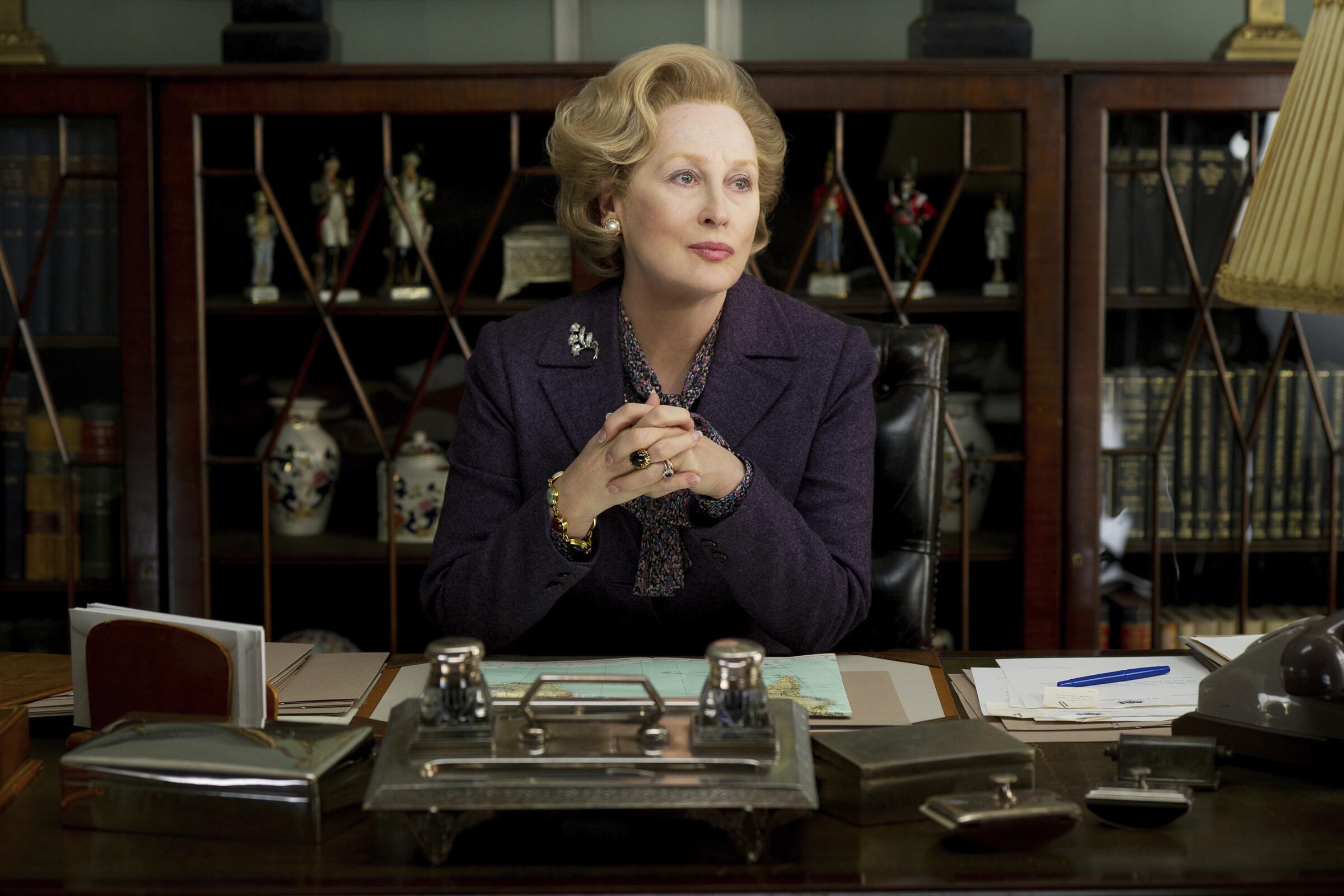
The Oscars are not math, there is no correct calculation on how to get a specific outcome, but they can feel like algebra. If, for example, Glenn Close had won for “The Wife” in 2019 over Oliva Colman, would Colman’s performance in “The Lost Daughter” be a stronger contender this year?
Then you start doing the mental calculations of what makes for an actor’s best performance: Does it play to what the Academy of Motion Picture Arts and Sciences actually likes to recognize? Was it also the best of its given year?
This year, does it feel right that Will Smith is expected to win his first Oscar for “King Richard”? Perhaps. And how will “The Eyes of Tammy Faye” ultimately rank in the career of lead actress front-runner Jessica Chastain (previously a nominee for “The Help” and “Zero Dark Thirty”)? She calls it her “hardest” role.
While we await the results from this year’s academy vote, a team of L.A. Times Oscar watchers/obsessives selected a few wins that stand out as examples of the right person winning for the wrong movie. The Oscars are, as always, not an exact science.
With the Oscar ceremony’s traditions being turned upside down, it feels appropriate that the awards themselves might go their own way too. Watch for surprises.
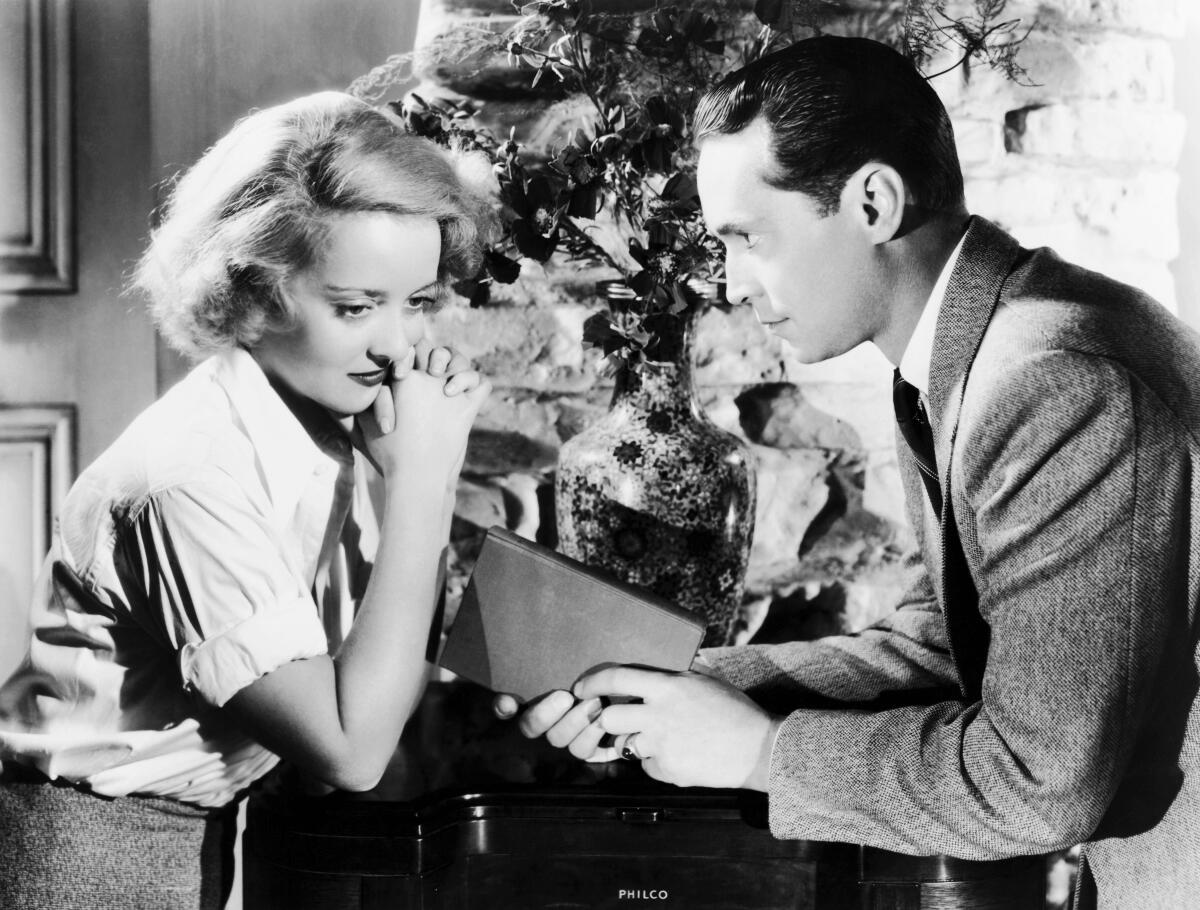
Debating which performances Bette Davis should have won lead actress Oscars for is an enduring sport among her legions of fans. Davis herself frowned on her win for 1935’s “Dangerous” (widely deemed a consolation prize after she wasn’t nominated for 1934’s “Of Human Bondage”), though her triumph for 1938’s “Jezebel” — one of my own personal favorites — has aged far better. Regardless, most classic Hollywood buffs would agree that Davis deserved to win a third (or fourth, or fifth) Oscar, certainly on the basis of her nominated but unrewarded performances in “Now, Voyager” (1942), “What Ever Happened to Baby Jane?” (1962) and, supremely, “All About Eve” (1950). — Justin Chang
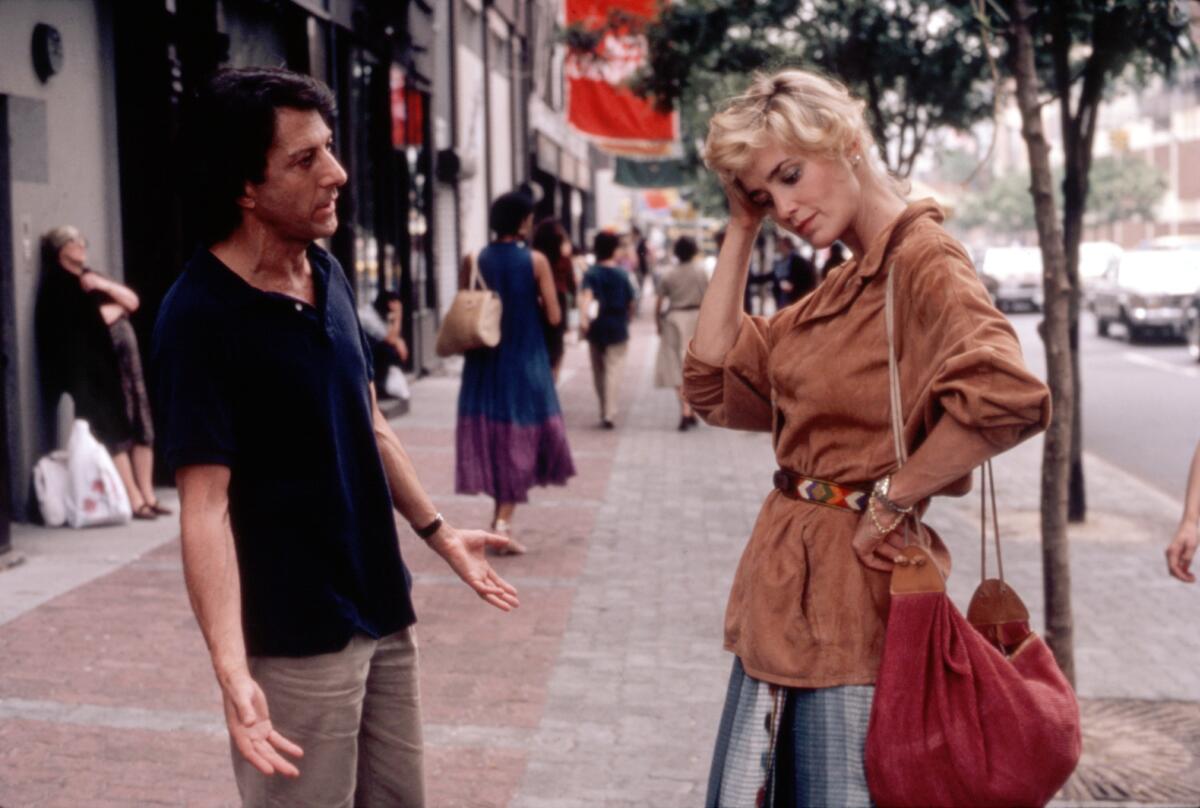
In 1983, Jessica Lange was nominated for two acting Oscars, lead actress for “Frances” and supporting actress for “Tootsie.” She won the latter. Good news for “Tootsie,” which would have otherwise left empty-handed despite having 10 nominations, including for best picture. Not great for “Frances” — its only other nominee was Kim Stanley for supporting actress. While Lange was certainly delightful in “Tootsie,” her biopic performance as the tragic Frances Farmer was, and remains, breathtaking. But Lange was up against Sissy Spacek (“Missing”), Julie Andrews (“Victor/Victoria”), Debra Winger (“An Officer and a Gentleman”) and, of course, Meryl Streep — who won her first lead actress Oscar for “Sophie’s Choice.” Quite a year. — Mary McNamara
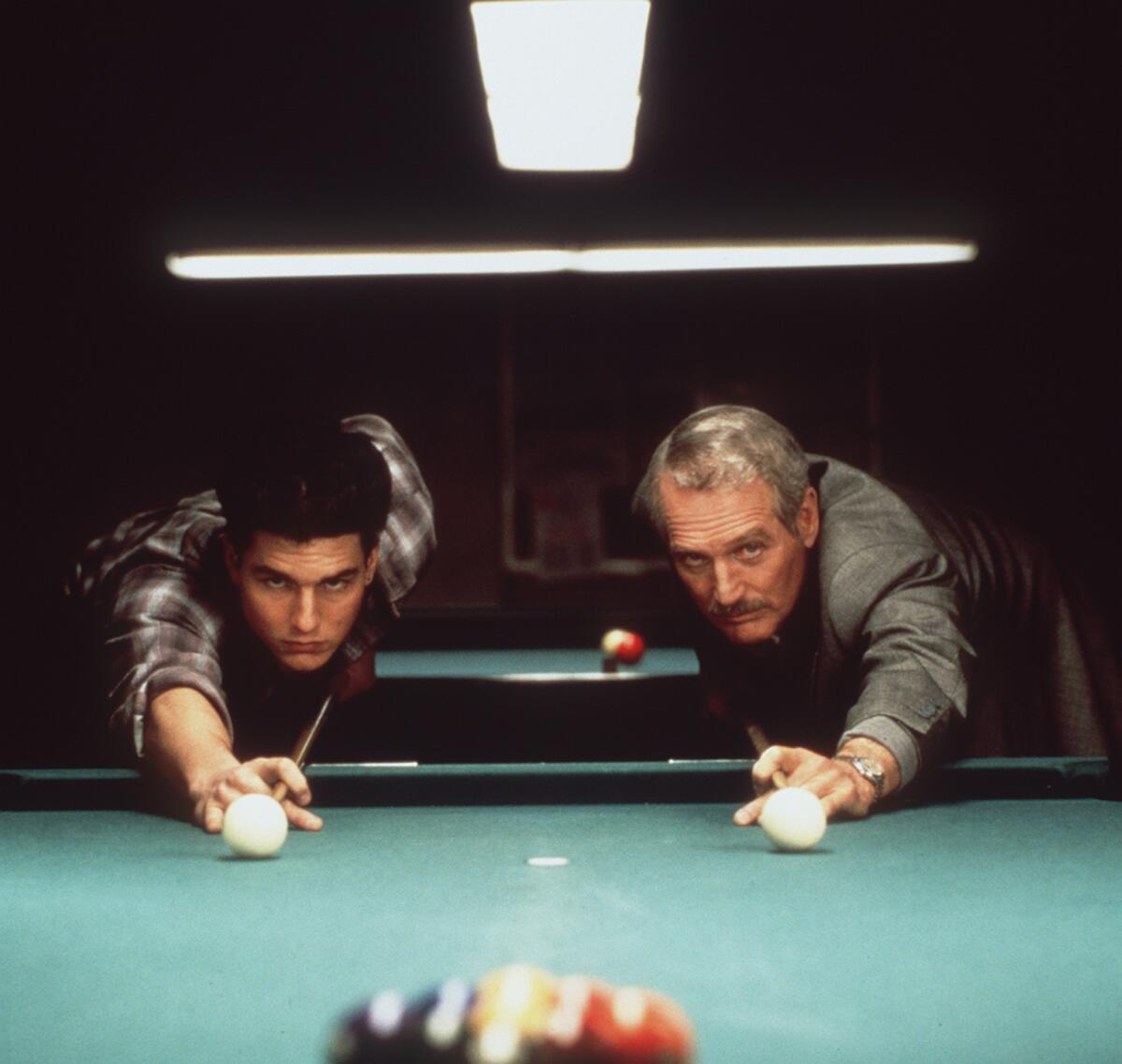
Paul Newman is great in “The Color of Money,” returning to the role of pool hustler “Fast Eddie” Felson decades after being nominated for his performance in “The Hustler.” But he was something else entirely in “The Verdict,” channeling his dark charisma and steely disposition into a washed-up lawyer who has a moment of clarity for one client, a late-career turn that might have been his best ever. Although he was nominated in 1983 for “The Verdict,” he was competing in a year that also included Peter O’Toole, Jack Lemmon, Dustin Hoffman and eventual winner Ben Kingsley for “Gandhi.” A few years later, against a lighter field of competitors, Newman finally won his only competitive Oscar. — Mark Olsen
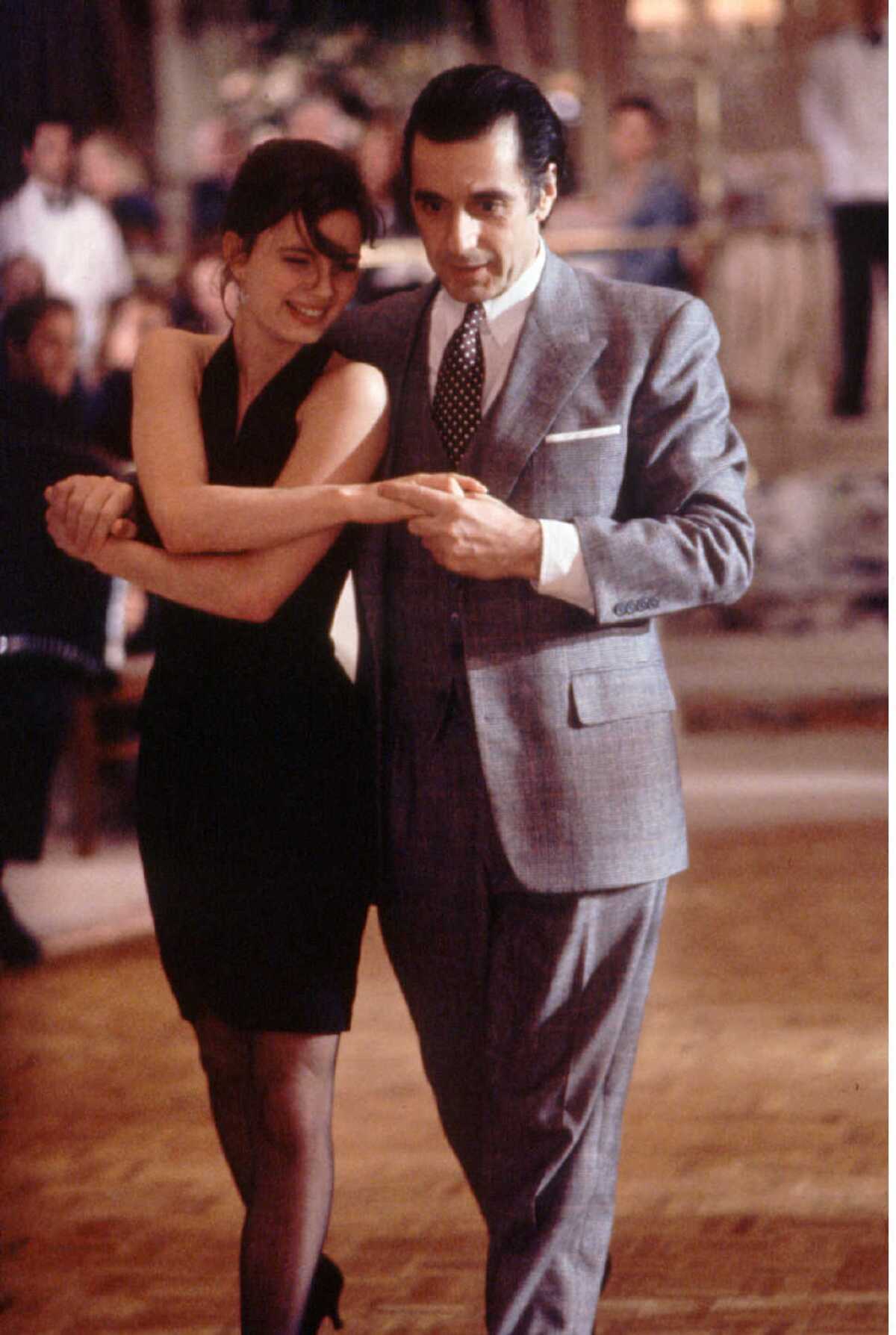
Pacino scored his first Oscar nod in 1973 for his breakthrough as Michael Corleone in “The Godfather” and went on to earn nominations the next three consecutive years for “Serpico,” “The Godfather Part II” and “Dog Day Afternoon.” But while each of those now-iconic performances was undeniably Oscar-worthy, it wasn’t until 20 years later that Pacino finally took home the trophy on his eighth nomination for one of his shoutiest, most over-the-top performances as a blind, irascible retired lieutenant colonel. “Hoo-ah”? Hooey. — Josh Rottenberg
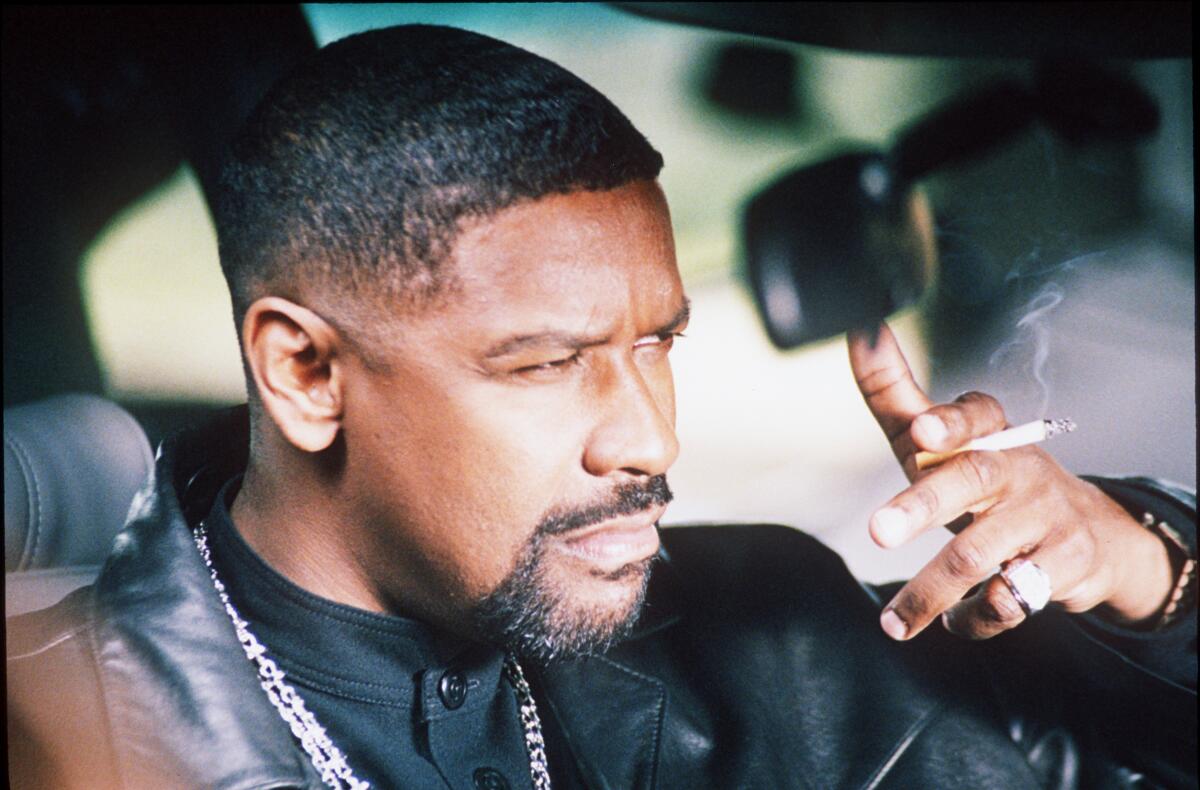
Though there is something exciting in seeing the typically stalwart and forthright Denzel Washington play a demonically corrupt cop in “Training Day” — and his Oscar acceptance speech provided one of the greatest moments in Academy Awards history — who can deny he should have won his first lead actor award nearly a decade earlier for “Malcolm X.” (He already had a supporting actor trophy for “Glory.”) Yet in 1992 he was competing against ... Al Pacino in “Scent of a Woman.” Who, as mentioned above, should have had an Oscar or two already. It’s another multiverse of Oscars might-have-beens. — MO
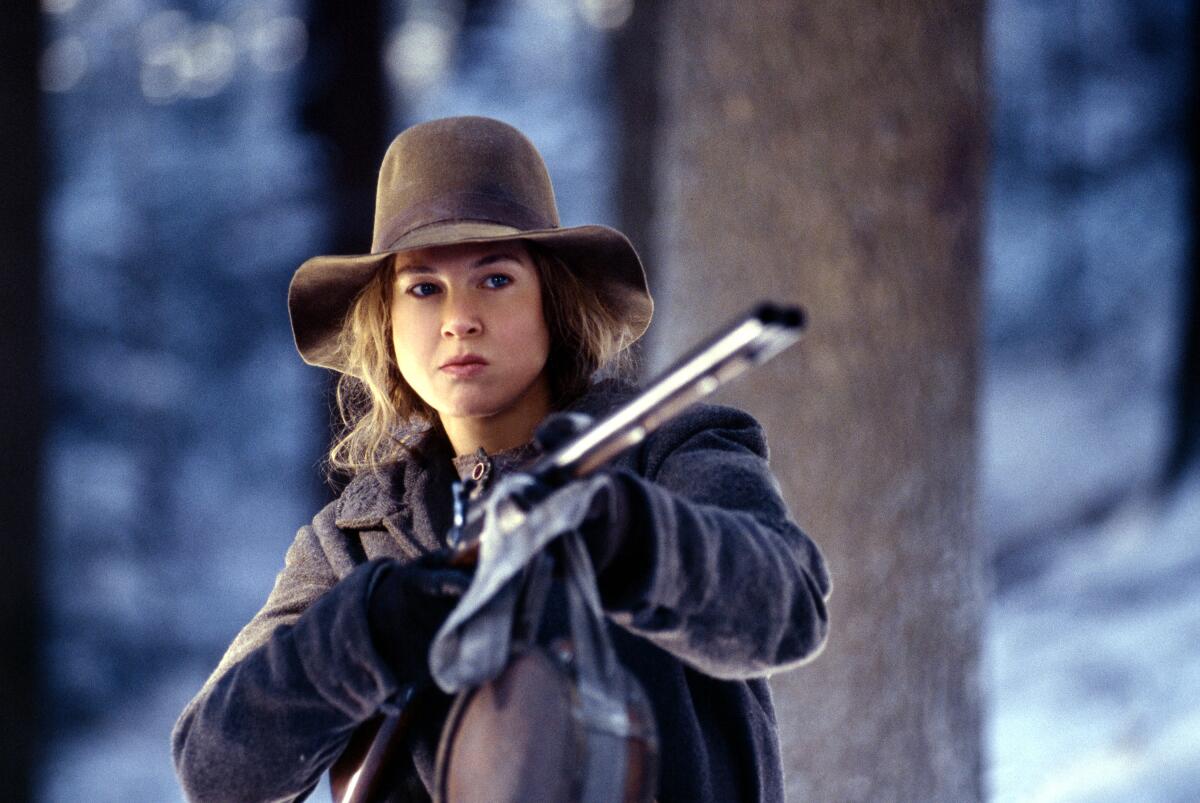
Renée Zellweger has two Oscars — for supporting actress in “Cold Mountain” and for lead actress in “Judy,” parts that played to the academy’s chronic devotion to showbiz biopics and literary period pieces. But what romantic comedy fans and viewers of basic cable in the mid-00s know is that Zellweger deserved to take home the gold for her indelible performance as the perpetually frazzled, diet-obsessed title character of 2001’s “Bridget Jones’s Diary.” A lot of fuss was made over the transformation Zellweger, a slight Texan, went through to play a (supposedly) chubby Londoner, but what stands out two decades later is Zellweger’s ability to be a charming yet vulnerable everywoman, the nuance she brought to her role as the quintessential singleton and, of course, her fierce commitment to lip-syncing “All By Myself” in her pj’s. — Meredith Blake
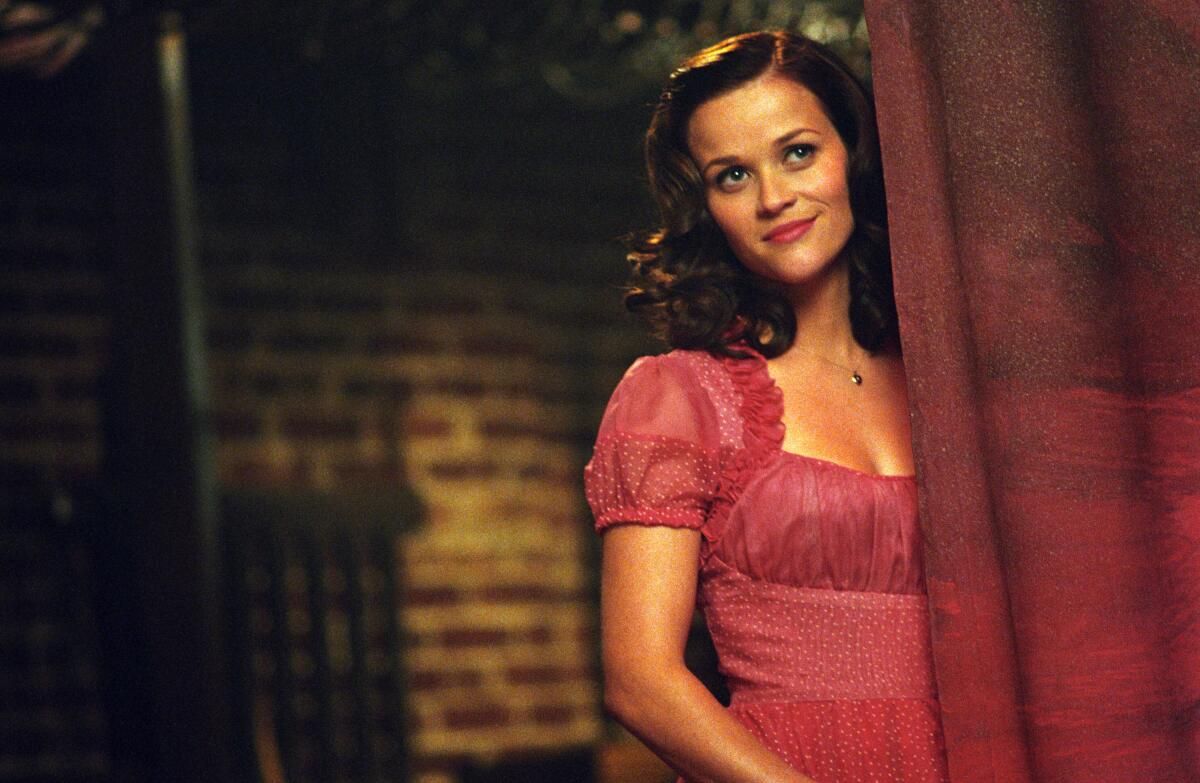
Tracy Flick isn’t just one of the most memorable characters to emerge in an American movie over the last 30 years; her name is a fixture of the pop-cultural lexicon and her legacy — conniving villain or misunderstood heroine? — still generates debate across the cultural-political spectrum. All of which is a testament to the prescience of Alexander Payne’s “Election” and the enduring power of Reese Witherspoon’s greatest performance, the performance for which she should have received (at least) her first Oscar nomination for lead actress. She would land that lead actress nomination — and win — a few years later for her very good, arguably supporting performance as June Carter Cash in “Walk the Line,” in a classic case of the academy playing catch-up. — JC
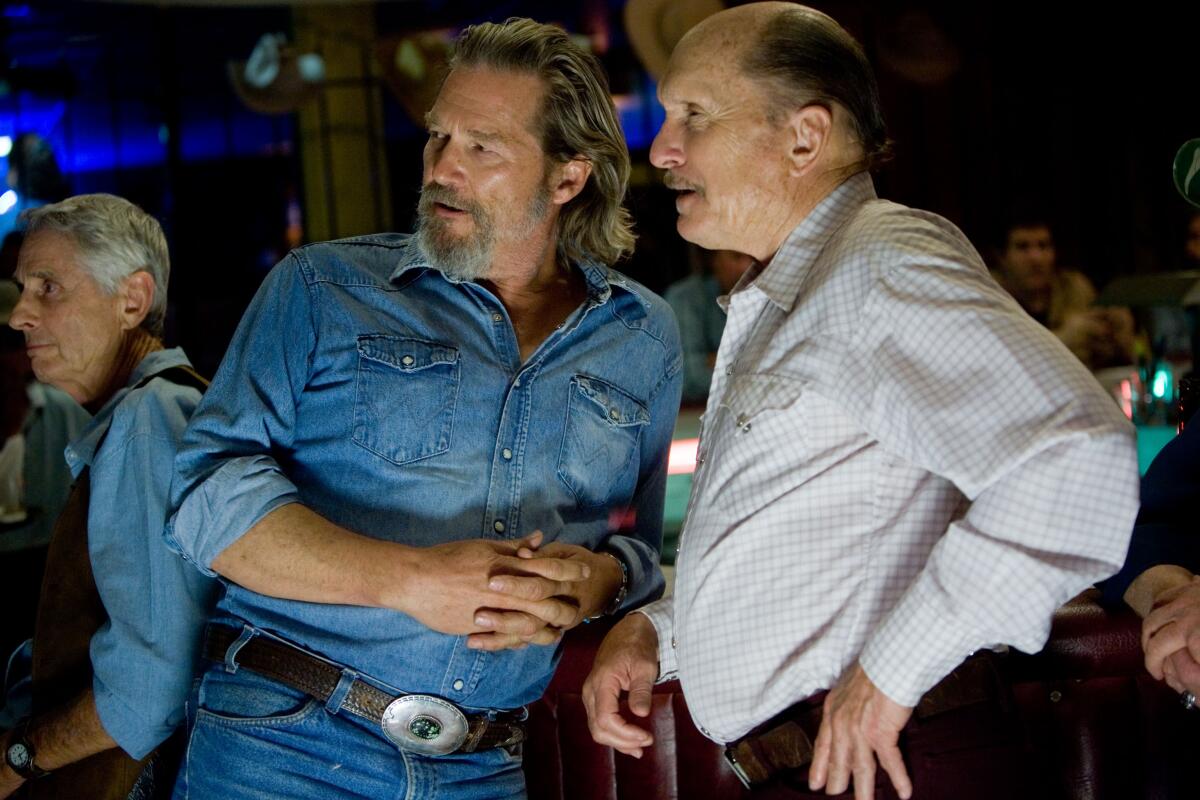
I’ve got no problem with “Crazy Heart.” The Oscar that Jeff Bridges won for playing a grizzled country singer really tied his career together. But The Dude abides. And Bridges should have won the Oscar for the role that defined him and gave birth to a religion. You know who won the lead actor Oscar the year of our Lord, the year of “The Big Lebowski”? Roberto Benigni. Over the line! Mark it zero. This aggression should not stand. But it’s the Oscars, so there’s a lotta ins, a lotta outs, a lotta what-have-yous. Bridges should have won though. But, you know, that’s just, like, my opinion, man. — Glenn Whipp
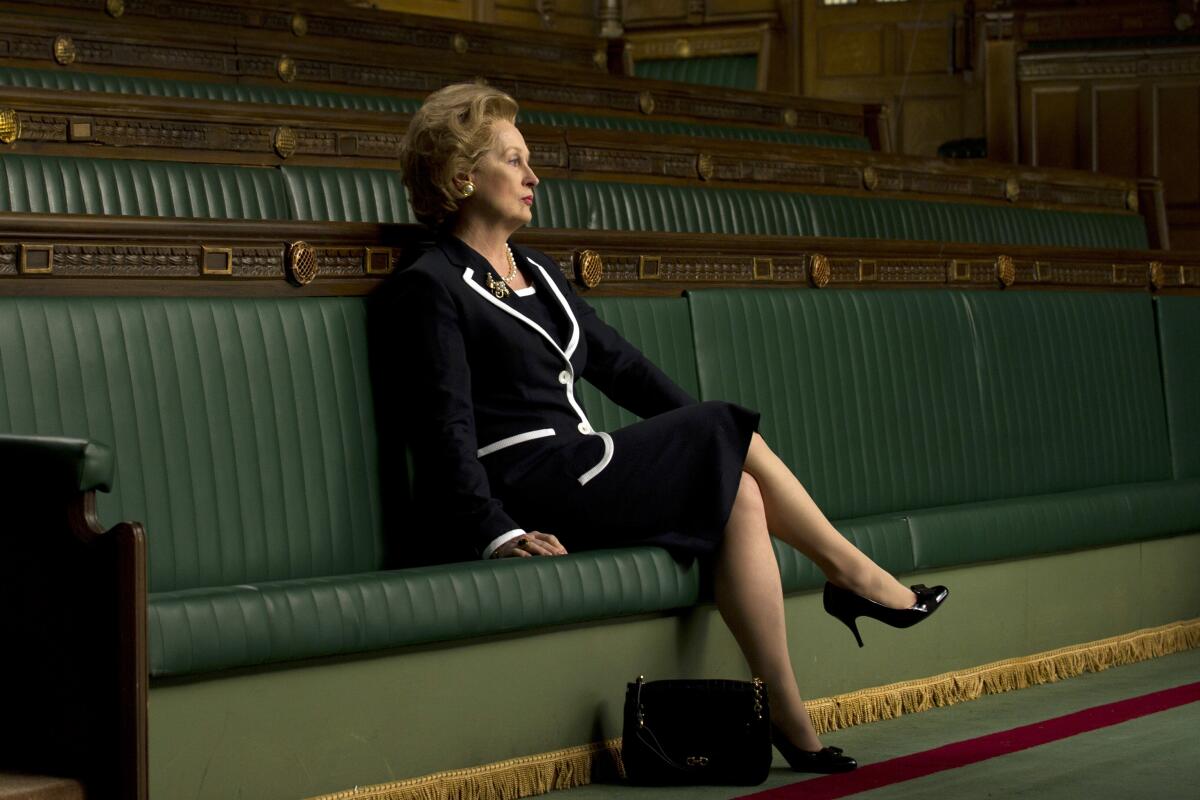
Her Margaret Thatcher is transformational and fully realized. But I would argue more outstanding performances of hers didn’t win. When thinking of La Meryl, does “Iron Lady” come to mind? Her downright Satanic Miranda Priestly in “The Devil Wears Prada” — iconic. Her steely nun in “Doubt,” lovable free spirit in “Defending Your Life,” ordinary person torn by a life-changing decision in “Falling in Love,” sympathetic, scrappy Helen in “Ironweed” … with La Meryl, there are simply too many memorable performances to list that I would have awarded ahead of “Iron Lady.” — Michael Ordoña
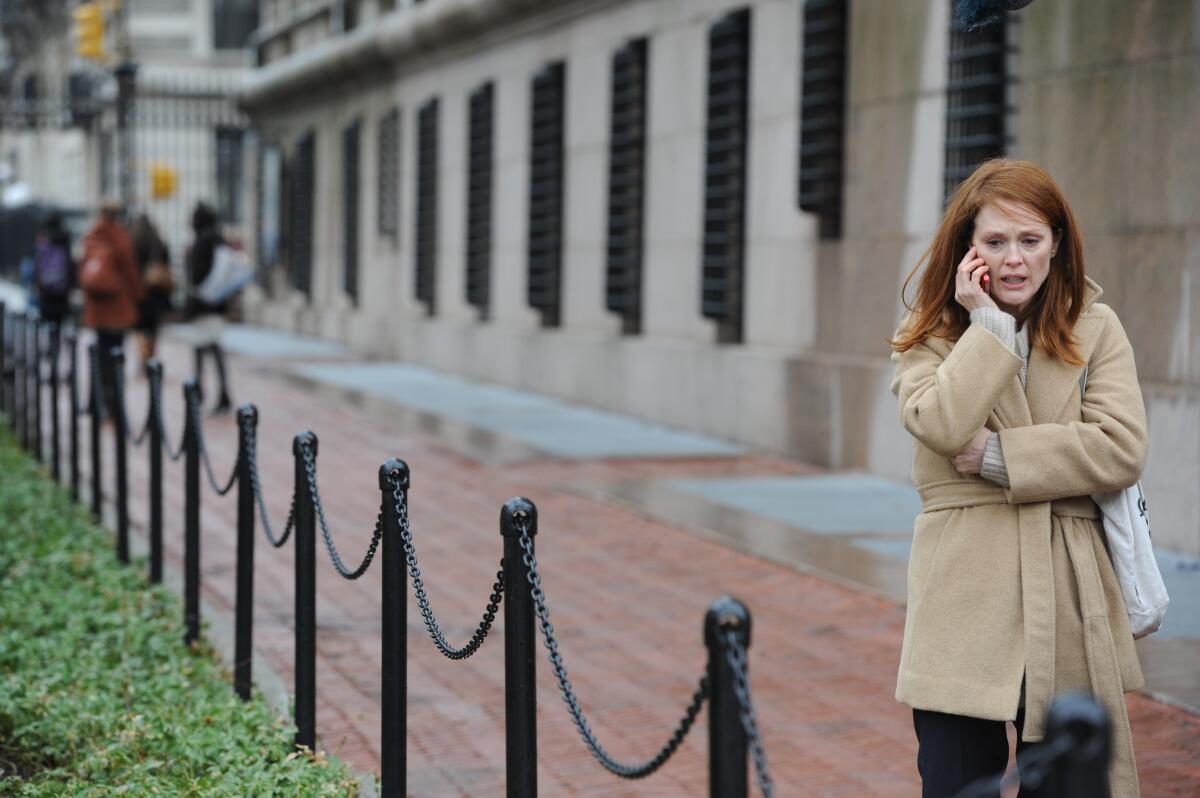
One needn’t speak ill of “Still Alice,” the moving 2014 indie in which Julianne Moore plays a woman unmoored by early-onset Alzheimer’s, to suggest that her other nominated performances are likelier to stand the test of time. Because they already have. Her porn star striver Amber Waves, in “Boogie Nights,” made her a central figure in Paul Thomas Anderson’s earliest features (see also: “Magnolia’s” most-memed monologue); “The End of the Affair” established her as a capable channeler of midcentury womanhood; and a pair of extraordinary performances as repressed housewives, in “The Hours” and “Far From Heaven,” landed her a coveted double-nomination in 2003.
It’s the last of these, Todd Haynes’ beautifully realized tribute to the melodramas of Douglas Sirk, that will always define Moore’s legacy for me, and should have won her the Oscar: As Cathy Whitaker, a prim Connecticut woman whose perfect life unravels around her, Moore seamlessly enmeshes modern technique with period style, producing one of the most vividly original film performances of the 21st century. — Matt Brennan
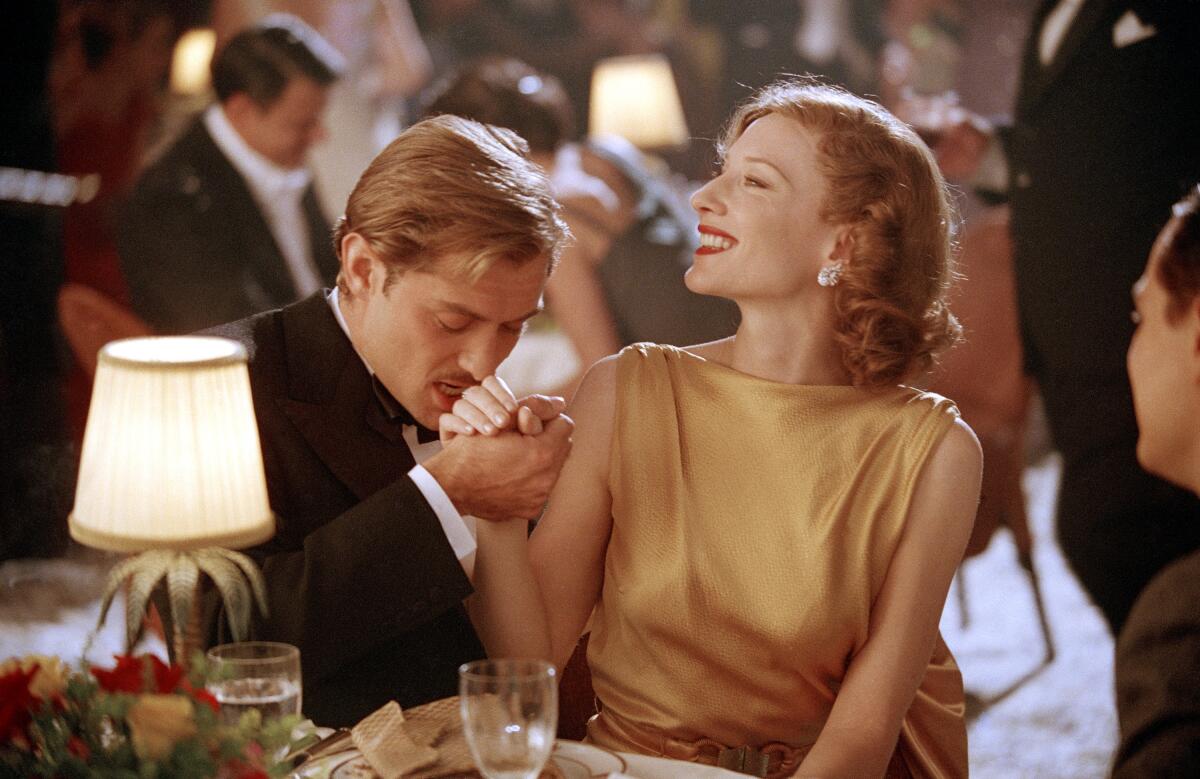
Cate Blanchett’s star-making performance in “Elizabeth” is the stuff academy voters usually go gaga for: a lavish historical biopic involving elaborate costumes, oodles of political intrigue and a protagonist with a highly dramatic character arc. Blanchett elevated Shekhar Kapur’s extravagant vision of 16th century England by playing the so-called Virgin Queen as something of a modern-day working woman struggling to balance her ambition with her desire for intimacy (only her job required beheadings rather than late nights at the office).
But in 1999 she lost the Oscar to Gwyneth Paltrow for her more conventional ingenue turn in “Shakespeare in Love” and the academy controversially chose to honor a different actress, Judi Dench, for playing Queen Elizabeth I for a whole eight minutes of screen time in the same film. Blanchett would eventually win two Oscars for her work with famed directors — for playing Katherine Hepburn in Martin Scorsese’s “The Aviator” and a disgraced Ruth Madoff-esque figure in Woody Allen’s “Blue Jasmine” — but her collaborations with Todd Haynes in the romance “Carol” and the experimental Bob Dylan biopic “I’m Not There,” both of which earned nominations, were more audacious and award-worthy. — Meredith Blake
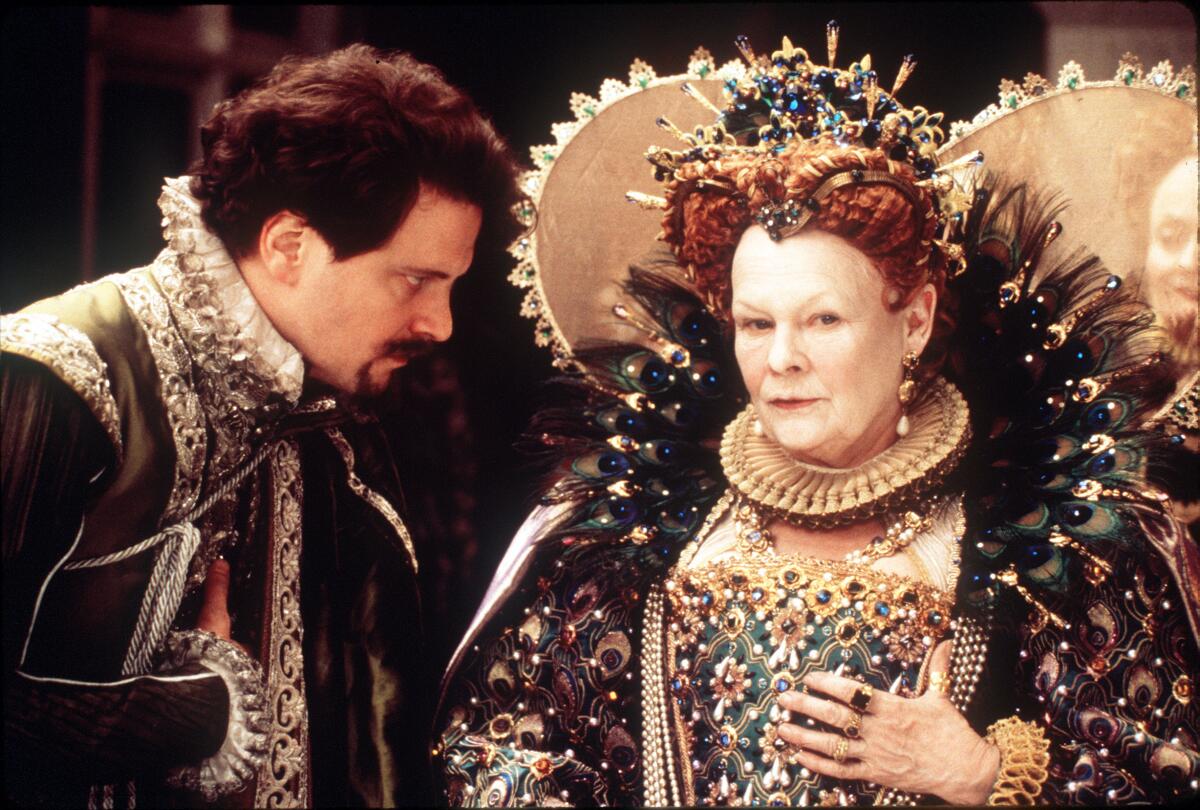
Dench’s Oscar win for her towering performance as Queen Elizabeth I is often scorned as undeserving. That’s partly because she has only about eight minutes of screen time in “Shakespeare in Love” (still more than Beatrice Straight’s Oscar-winning five minutes and two seconds for “Network”), and partly because she’s received so many nominations since — including this year, for “Belfast” — as to almost join Meryl Streep in the “she farts and gets an Oscar nomination” club. All of which I’d respond to with rude noises of my own: Dench is perfection in “Shakespeare in Love,” and it’s precisely because her screen time is so limited — or rather, so exquisitely judged — that her work has such outsized impact. — JC
Only good movies
Get the Indie Focus newsletter, Mark Olsen's weekly guide to the world of cinema.
You may occasionally receive promotional content from the Los Angeles Times.